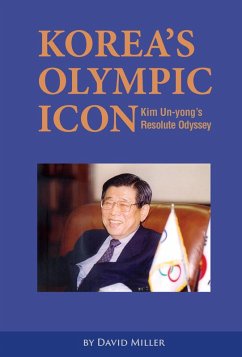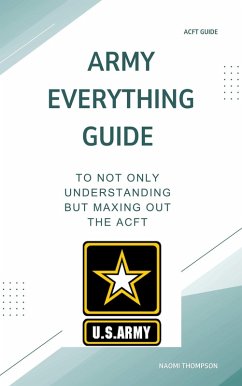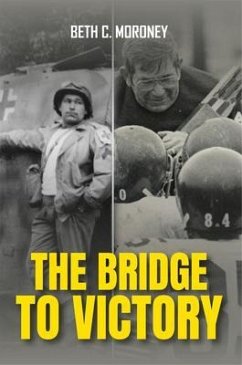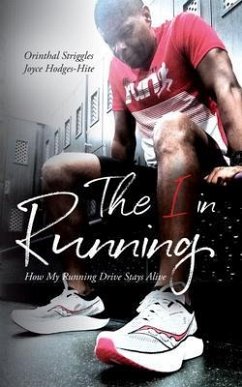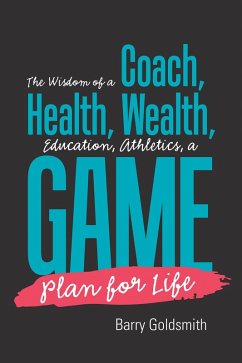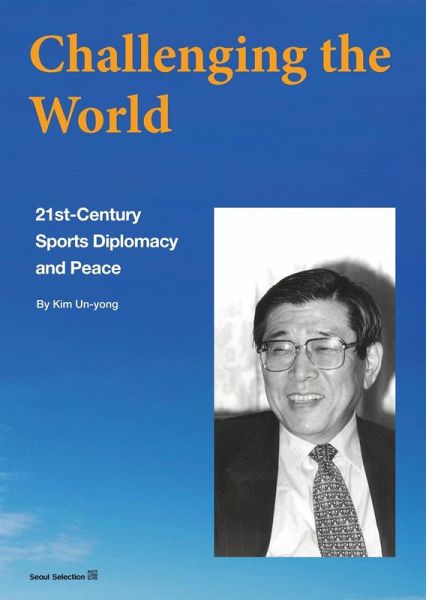
Challenging the World: 21st-Century Sports Diplomacy and Peace (eBook, ePUB)

PAYBACK Punkte
0 °P sammeln!
This book was written in 2002 by Kim Un-yong, former vice president of the International Olympic Committee (IOC), and updated shortly before his passing in 2017. A former diplomat, he turned his hand to sports administration when he became president of the Korean Taekwondo Association (1971).He quickly founded the Kukkiwon (1972) and the World Taekwondo Federation (1973), and worked tirelessly to develop taekwondo, a Korean martial art, into a popular global sport. The IOC's approval of taekwondo as an Olympic sport in 1994 was his crowning glory.Kim Un-yong was instrumental in the successful ...
This book was written in 2002 by Kim Un-yong, former vice president of the International Olympic Committee (IOC), and updated shortly before his passing in 2017. A former diplomat, he turned his hand to sports administration when he became president of the Korean Taekwondo Association (1971).
He quickly founded the Kukkiwon (1972) and the World Taekwondo Federation (1973), and worked tirelessly to develop taekwondo, a Korean martial art, into a popular global sport. The IOC's approval of taekwondo as an Olympic sport in 1994 was his crowning glory.
Kim Un-yong was instrumental in the successful bid for and staging of the 1988 Seoul Olympics. Elected as an IOC member in 1986, and swiftly rising to become an executive board member (1988) and vice president (1992), he was a consummate sports diplomat on behalf of Korea and Korean sports for over 30 years.
This book will help readers understand the world of sports and the importance of sports diplomacy. Kim Un-yong describes his experiences with world sports figures, including former IOC president Juan Antonio Samaranch, behind the scenes negotiations with North Koreans for the first historic joint march of North and South Korean athletes at the 2000 Sydney Olympics, and how he was able to seize valuable opportunities for Korea and Korean sports so successfully.
He also describes the IOC presidential election in Moscow in 2001, where he came in second. Pyeongchang's failed bid in 2003 for the 2010 Winter Olympics resulted in a cynical blame game among domestic politicians that led to his imprisonment in 2004. The prosecution against him drew condemnations from around the world and was strongly criticised by the United Nations Human Rights Commission. He was later pardoned and reinstated in 2008.
Despite setbacks and adversity ("challenges"), Kim Un-yong is full of positive memories of his colourful life. When life did not go as planned, he often took the second best option and turned them into remarkable successes. ("Taking the next best option and giving it my all brought surprisingly good results.")
He quickly founded the Kukkiwon (1972) and the World Taekwondo Federation (1973), and worked tirelessly to develop taekwondo, a Korean martial art, into a popular global sport. The IOC's approval of taekwondo as an Olympic sport in 1994 was his crowning glory.
Kim Un-yong was instrumental in the successful bid for and staging of the 1988 Seoul Olympics. Elected as an IOC member in 1986, and swiftly rising to become an executive board member (1988) and vice president (1992), he was a consummate sports diplomat on behalf of Korea and Korean sports for over 30 years.
This book will help readers understand the world of sports and the importance of sports diplomacy. Kim Un-yong describes his experiences with world sports figures, including former IOC president Juan Antonio Samaranch, behind the scenes negotiations with North Koreans for the first historic joint march of North and South Korean athletes at the 2000 Sydney Olympics, and how he was able to seize valuable opportunities for Korea and Korean sports so successfully.
He also describes the IOC presidential election in Moscow in 2001, where he came in second. Pyeongchang's failed bid in 2003 for the 2010 Winter Olympics resulted in a cynical blame game among domestic politicians that led to his imprisonment in 2004. The prosecution against him drew condemnations from around the world and was strongly criticised by the United Nations Human Rights Commission. He was later pardoned and reinstated in 2008.
Despite setbacks and adversity ("challenges"), Kim Un-yong is full of positive memories of his colourful life. When life did not go as planned, he often took the second best option and turned them into remarkable successes. ("Taking the next best option and giving it my all brought surprisingly good results.")
Dieser Download kann aus rechtlichen Gründen nur mit Rechnungsadresse in A, B, CY, CZ, D, DK, EW, E, FIN, F, GR, H, IRL, I, LT, L, LR, M, NL, PL, P, R, S, SLO, SK ausgeliefert werden.





